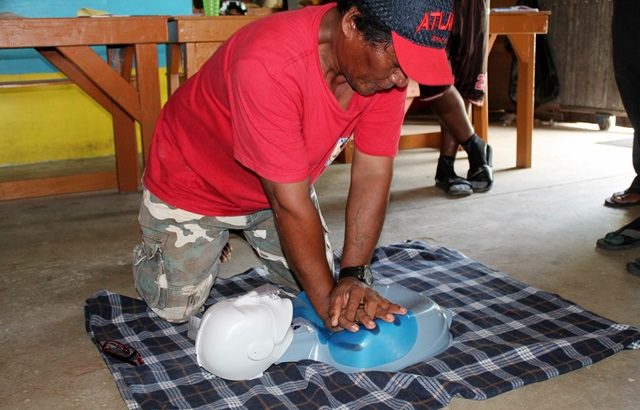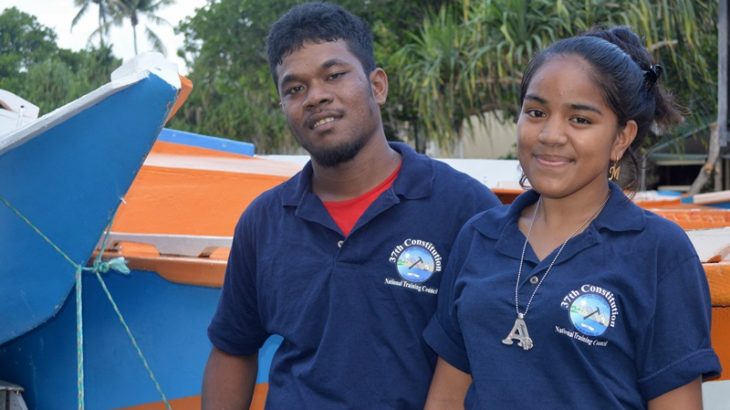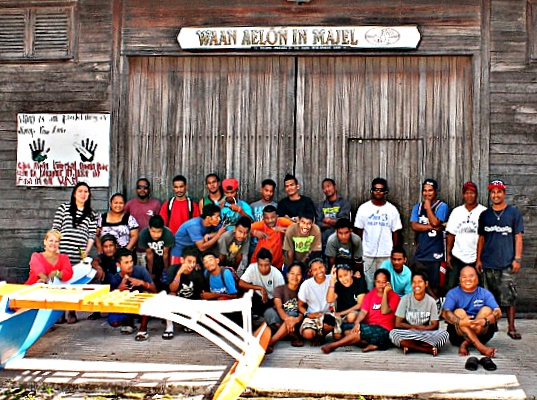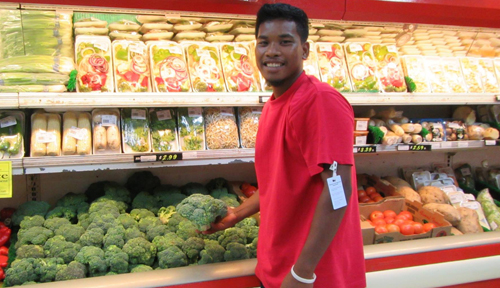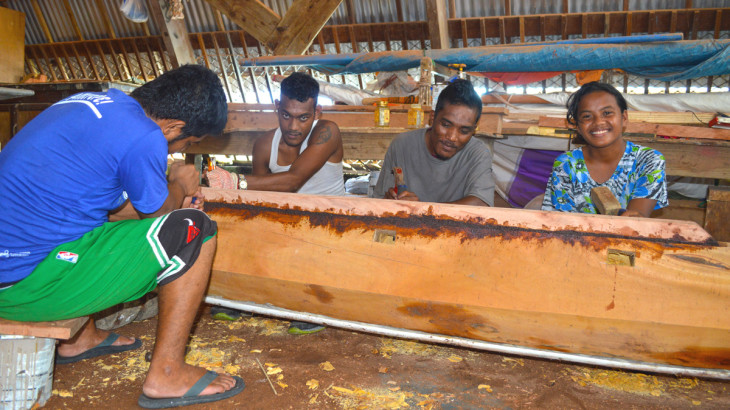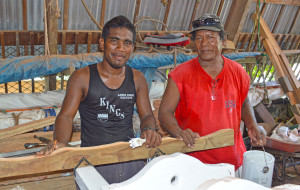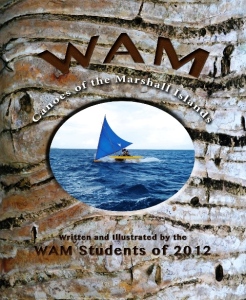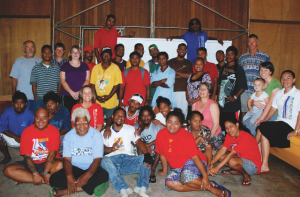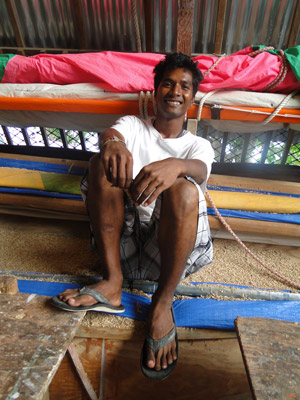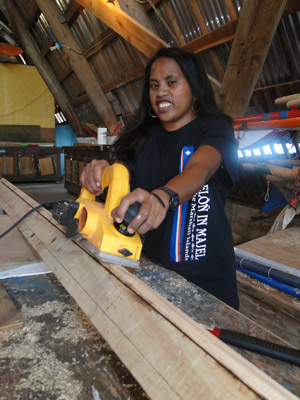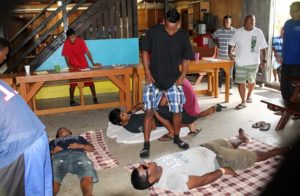
WAM trainees learn how to help in emergency situations. Photo: WAM
Eyes were popping and a reluctant attitude abounded as the 19 Waan Aelon in Majel (WAM) trainees were asked to do mouth-to-mouth resuscitation on one of their colleagues.
“Many aspects of first aid is not really appropriate culturally,” WAM Director Alson Kelen explained. “Asking a young man to ‘kiss’ his mom is, well, just not done.”
But Majuro Red Cross (MRCS) instructors were working hard to dispell this thinking during a two-day, “full on” first aid course designed to give people the hands-on skills need to save people’s lives.
“This is the first time the Red Cross has done this type of training for WAM and, I believe, for any organization here. It came about after the Red Cross’ Paul Alee contacted me and said they were thinking of doing some first aid training.
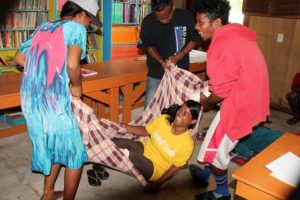
The Red Cross first aid workshop included some fun and games. Photo: WAM
“I said great! What can I do to facilitate it,” said Alson, knowing that this was just exactly the sort of training that boosted the skill base for the WAM trainees.
Understanding Alson’s eagerness, the MIRCS team put together a successful proposal to the RMI National Training Council for funding for the course.
Two part-time Red Cross instructors, Richard Anta and Kennedy Kaneko, and First Aid Course Coordinator Harry Herming led the WAM program, which is a certificate level course. Assisting them was Telbi Jason, who is the MIRCS Administrator.
“They brought a ton of equipment and were very serious in their approach, which the students got,” Alson said. “The only slight issue was that the training material was all in English, but the instructors managed the translations very well.”
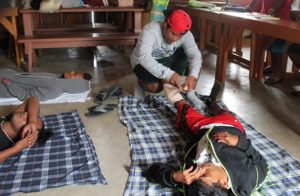
WAM trainees learn first aid skills thanks to the Red Cross workshop. Photo: WAM
The trainees were split into three groups for the mainly hands-on program. “For example, they’d brought along baby dolls to show how to press in the right area to restart their breathing. That was really great because all of these folks will have families one day and every bit of information like this will help. It will help them in their workplaces too.”
The trainees learned CPR, treatment of choking, management of emergency medical conditions and general first aid skills (including treatment of muscular and bony injuries, bleeding, burns, and poisoning).
A huge benefit to WAM is that the program’s instructors also took part, so they will be certified first aid workers for ongoing programs.
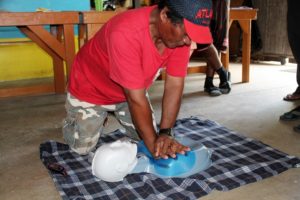
Instructor Binton Daniel learns first aid skills at the Red Cross workshop. Photo: WAM
Lead coordinator Harry said: “First aid training was totally new for these trainees. This was the first time they had learnt anything about first aid. But by the second day of the training the trainees were asking more questions, and were wanting to know more, showing they had become more and more interested in first aid as the training progressed.”
Harry believes the training was definitely successful: “The group of 19 young trainees who passed the course are now able to literally save a life. As well, Red Cross would of course like to repeat the first aid training to the next group of WAM trainees next year.”
He added that MIRCS can provide training to any other interested organizations. “We are just about to start training all the (100 odd) MALGov Local Police over the months of August and September.”
On the cultural side of things, Alson the instructors stressed to the trainees that it’s their obligation to put those feelings aside and do what was required. “its a difficult thing to do, but that’s part of our education on the first aid courses. “On this topic, Harry said: “For people who don’t understand, its a difficult thing (the idea of putting your mouth on your sister or mother), but once you have learned that it can really help someone and actually save their life this makes it easier. “Basically, he said, once you know why you must do something, it becomes easier.
“The trainees seemed to be completely into the course and I believe got a lot out of it,” Alson said. And this will be proven at the upcoming WAM graduation, scheduled for the end of September. “The Red Cross will be there to hand out their certificates of completion.”
Footnote: This article and photos first appeared in the Marshall Islands Journal’s August 5, 2016 issue. To subscribe to the Journal, check their website at www.marshallislandsjournal.com.

